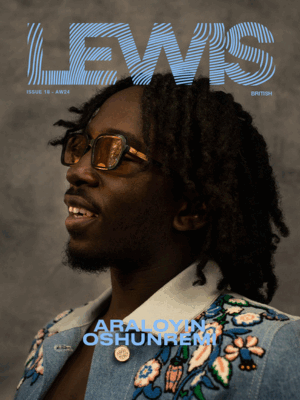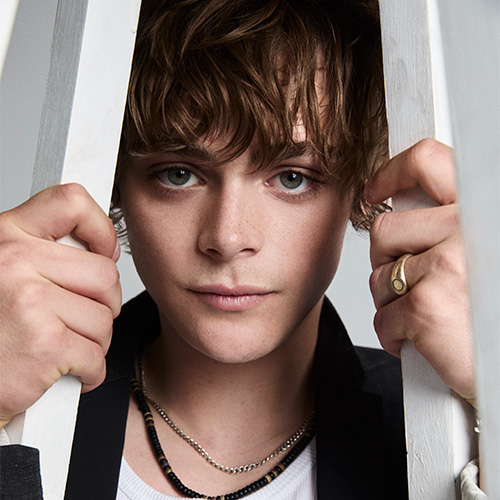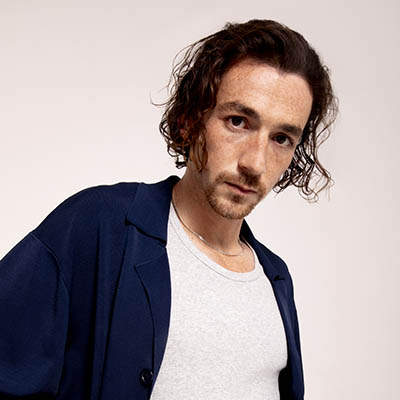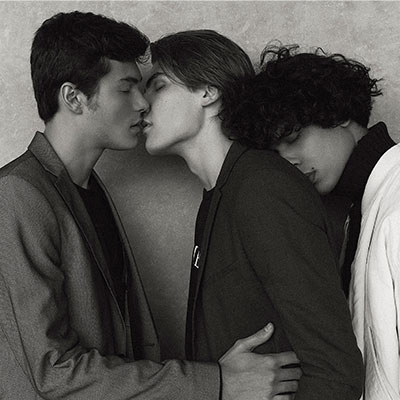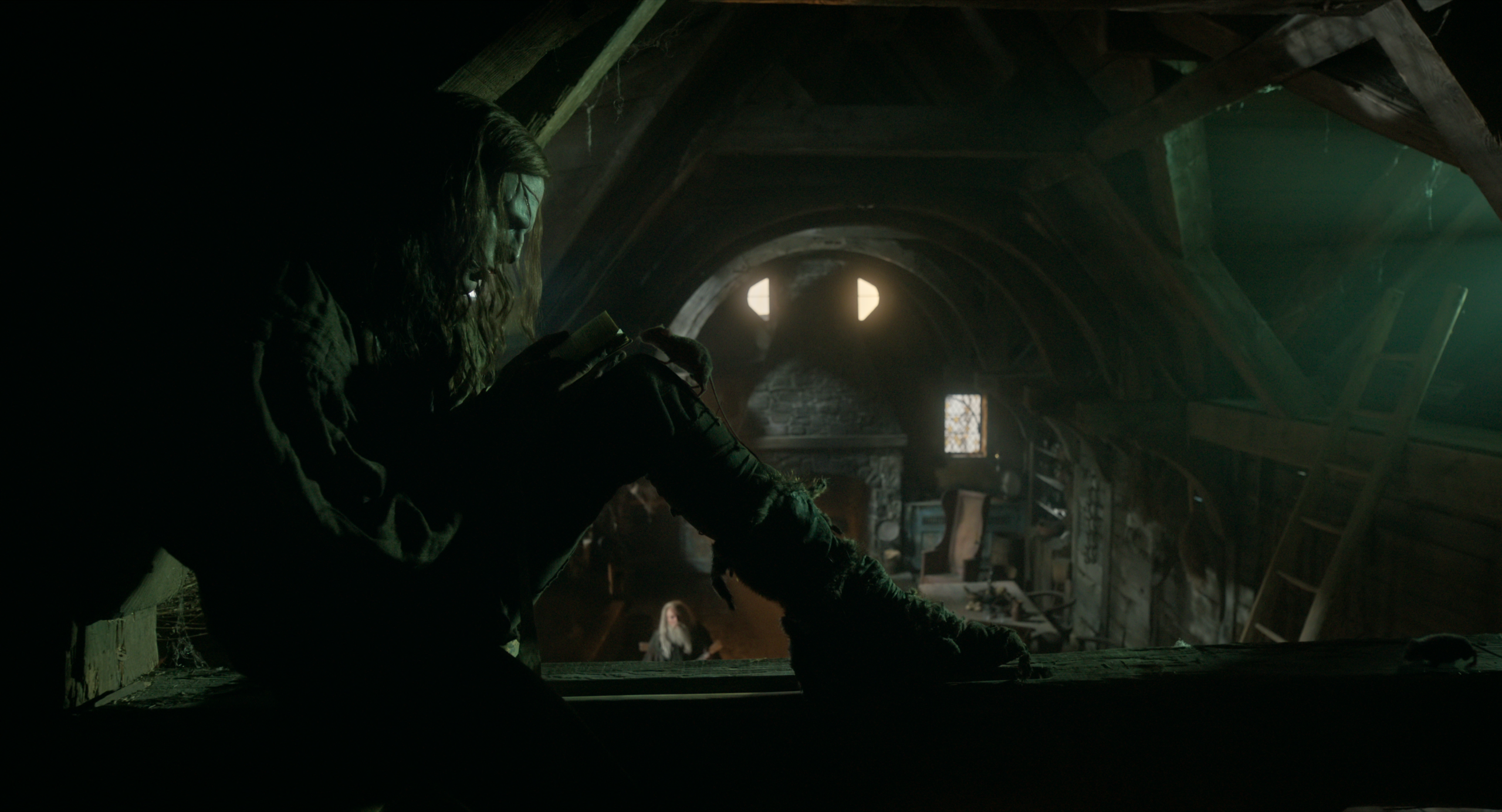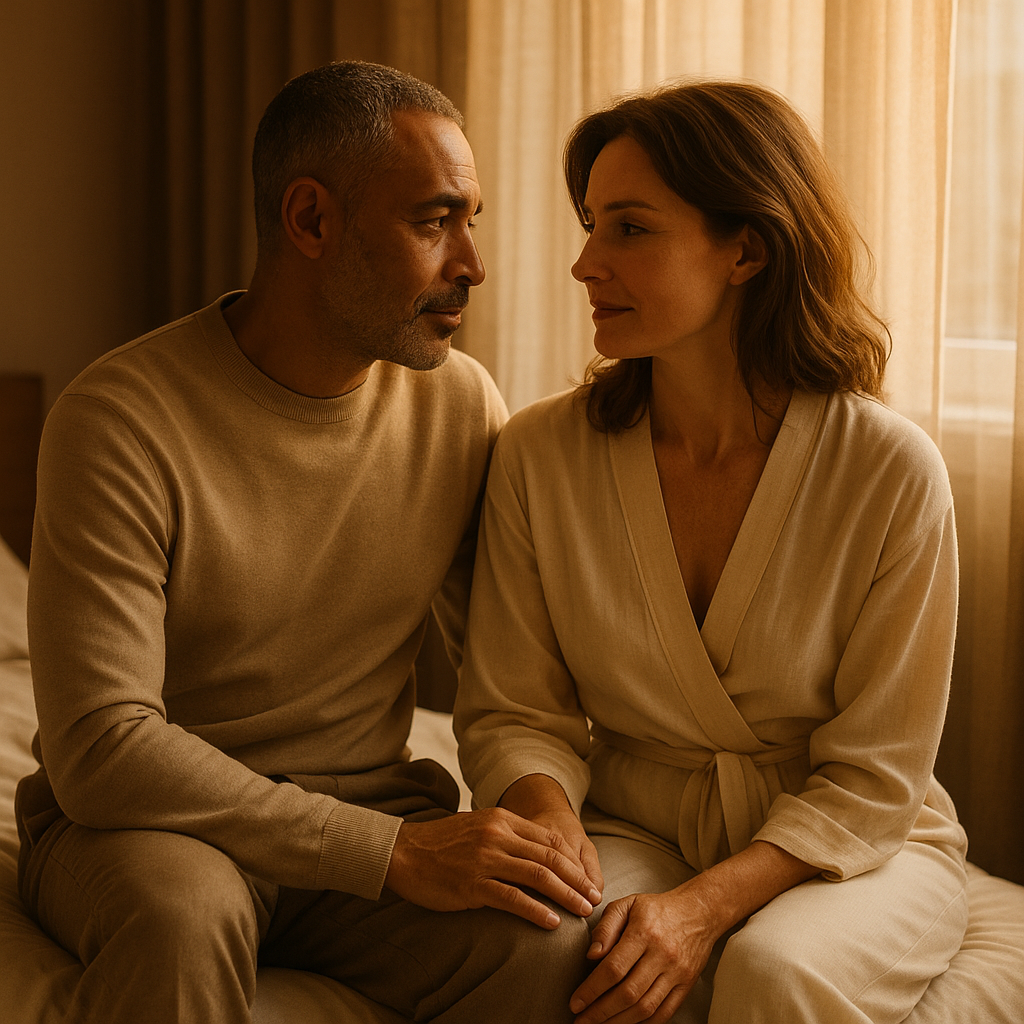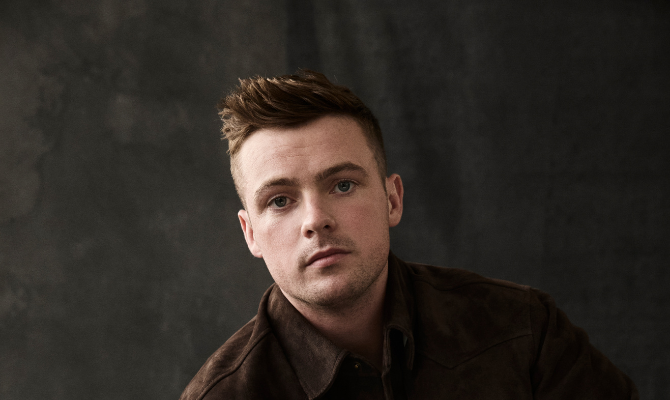There’s a nervous crackle in the Donmar’s rehearsal room as Theo Barklem-Biggs shuffles an imaginary deck. The Bafta-nominated Londoner has spent the last month learning when to bluff, when to fold and—most crucially—how to bare a soul in Patrick Marber’s razor-edged poker drama Dealer’s Choice. “Discomfort is a zone I know well,” he tells me. In Dunster’s lean new staging, Barklem-Biggs turns the green baize into a confession booth, laying out masculine fear, bravado and brittle humour with the precision of a croupier dealing one last, fatal hand.
1. Theo, you’re stepping into a reimagining of Dealer’s Choice, a modern classic with razor-sharp tension and testosterone. What drew you to this play—and to this particular version of it?
Discomfort. It’s a zone I know well. Plus, I got to learn how to play poker.
This version is the only version I know.

2. Patrick Marber’s writing is full of grit and emotional precision. How are you finding the balance between comedy, conflict and raw masculinity in this role?
It’s always a fine line, right? Conflict is always around the corner. At least, that’s been my experience. Not sure what you mean specifically by raw masculinity? I see DC as a full deck of raw human emotion—particularly misdirected self-loathing and fear, which we’re all capable of having. Perhaps—as men—we’re just louder. Fear and anger are cousins. I once read that “Anger is just fear with a moustache.”
3. The poker game becomes more than just cards—it’s a pressure cooker for unspoken truths. What kind of psychological space did you need to enter to bring that level of intensity to the table, night after night?
I suppose we have to draw on our own experiences—our own “pockets”—so what some would call traumatic experiences can become gold dust in this arena.
Patrick’s words are razor sharp and Dunster invites a pace, too. So I may betray my love of boxing in the comparison, but it’s a bit like sparring up there. It’s intense and you have to stay on your toes or you might topple.
This, for me, is a universe I know well.
4. You’ve had a string of roles that explore very different sides of masculinity—from Femme to SAS: Rogue Heroes. Does Dealer’s Choice feel like a continuation of that theme for you, or something entirely new?
Well, with Femme I was only involved in the Short/ Pitch—but yes, there’s a thread here for sure which explores, rather than exploits (in my opinion), masculine energy. It’s not at all a one-dimensional look into that energy. It definitely digs deep into the various survival mechanisms men may instinctively defer to when being prodded, tested, or under attack.
What I appreciate about this role (Sweeney in DC) is that it continues to give me the opportunity to take on characters that portray complex human emotion—more as a continuation of Cherry (playing a deranged GI), and even more so recently in Season 2, Episode 4 of Rogues, where my character Reg meets his own demons. A dark night of the soul moment.
The key difference between DC’s Sweeney and SAS’s Reg lies in how the characters face themselves.
In DC, most of them are caught in a kind of escape. Poker, for example, isn’t just a game or a distraction—it’s both a tactical tool and a metaphor for their condition. They hide behind it, just as they hide behind bravado, addiction, or fantasy.
What they’re really avoiding isn’t danger or failure—but the full weight of who they are. The fear runs deeper. It’s a fear of confronting life head-on, without illusion. Of facing the fact that death is real—and coming.
In this state, their lives start to feel hollow—disconnected, aimless, without meaning. Their “freedom” becomes just another form of isolation.
Reg is different. He doesn’t run. He suffers, yes—but he does so without masks, without needing a fantasy to justify himself. He’s not trying to escape.
He shows up.
And that’s what makes him real.
5. The Donmar is such an intimate space—how does performing in a venue like that shape your approach to a role compared to the wide lens of film or TV?
The Donmar’s a crucible. It demands something closer to the camera’s honesty—less performative, more exposed. I consider myself very lucky to have worked there three times.
It aligns more closely with the rawness you can portray on camera without having to “sell it” as much—in comparison to working at the Wyndham’s. There’s still some of that, of course, but the key difference is the magic of the unpredictable audience being an extra member of the cast you have to spar with.
It’s been said before, but you can see people’s whites of the eyes—that lends itself to less of a fourth wall and more participation, even if it’s not explicit.
It’s truly exhilarating—those 300-odd people get to see a completely unique show every night that won’t be shared again—which is precious.
I have a chamber in my heart reserved specifically for film, though, as it’s what first drew me to acting in praxis.
6. You’ve worked with some powerful names—Tom Holland, Paapa Essiedu, Steven Knight. Has anything you picked up on those sets informed how you approach theatre work today?
Over time, I’ve learned to keep it simple—“Sufficient unto the day are the evils thereof,” and all that.
I stay prepared with a few consistent rituals of self-care, self-respect, and discipline that go a long way to preparing for the inevitable unknowns that spring up in life and work.
Some of the people you mention are incredibly talented, and I consider it an absolute honour to have worked with all of the above.
However, I really force myself to stay focused on what buttons of mine are being pushed—what tickles me, what trips me up.
It’s not narcissistic—it’s a survival thing.
7. Lastly, poker is all about reading people. Has this role changed the way you observe human behaviour—onstage or off?
It’s reaffirmed (rather than changed) what my gut instincts have taught me so far:
The more I try to figure out human behaviour, the less I know.
The more I focus on my own conduct, the better chance I have at becoming a better man—and getting another acting job.










